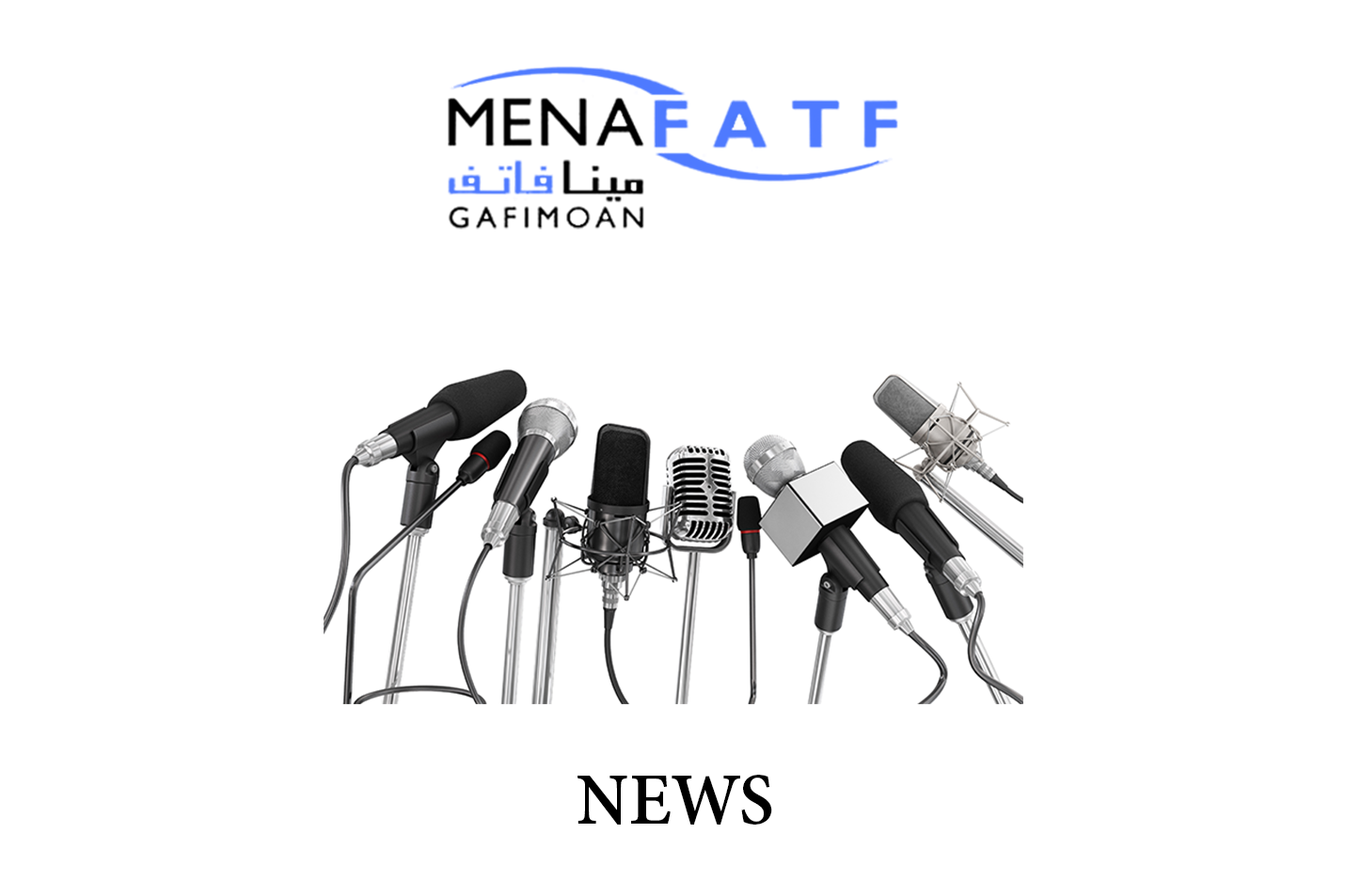On Tuesday 8 June 2021, the work of MENAFATF 32nd plenary on AML/CFT, which was held “virtually” for three days, starting from Sunday 06 June 2021, was concluded under the chairmanship of His Excellency Counsellor/ Ahmed Saeed Hussein Khalil - President of the MENAFATF, Vice-President of the Court of Cassation, and Chairman of the Board of Trustees of the Egyptian Anti-Money Laundering and Terrorist Financing Unit (“EMLCU”).
A large number of AML/CFT experts from 19 Arab countries that are members of the MENAFATF participated in the work of the plenary (Hashemite Kingdom of Jordan, United Arab Emirates, Kingdom of Bahrain, Republic of Tunisia, People’s Democratic Republic of Algeria, Kingdom of Saudi Arabia, Republic of Sudan, Syrian Arab Republic, Republic of Iraq, Sultanate of Oman, State of Palestine, State of Qatar, State of Kuwait, The Lebanese Republic, State of Libya, Arab Republic of Egypt, Kingdom of Morocco, Islamic Republic of Mauritania, and Republic of Yemen), and representatives of several countries and observers of the MENAFATF participated therein as well (Republic of France, United Kingdom, United States of America, Australia, Federal Republic of Germany, International Monetary Fund, Co-operation Council for the Arab States of the Gulf, Financial Action Task Force, Eurasian Group, and the United Nations).
During its sessions, the plenary discussed many important topics related to areas of MENAFATF works and activities, and took many important decisions in that regard, the most important of which are the MENAFATF’s annual report for 2020, the estimated budget for 2022, and the basis of MENAFATF's funding model.
In a related context, the plenary meeting adopted a paper for the implementation of the plan to increase the effectiveness of MENAFATF, and a paper for the proposed amendments in the draft bylaws. The Plenary also approved the renewal of the nomination of the co-chairs of working groups and committees of the MENAFATF for (2021-2023), while encouraging member countries to nominate experts to chair the Operational Forum on Terrorist Financing (OFTF), starting from November 2021.
Meetings on the Margins of MENAFATF Plenary
On the margins of the plenary, meetings of the Mutual Evaluation Working Group (“MEWG”), and the Technical Assistance and Typologies Working Group (“TATWG”) were held during the period from 30 May – 2 June 2021. The plenary adopted the reports of the working groups and committees’ co-chairs and approved their recommendations.
Mutual Evaluation and Follow-up Processes
The plenary meeting reviewed the progress made by some member countries in the - area of compliance - to international standards related to AML/CFT, and commended the achievements made in strengthening their relevant systems considering the plan set out in the MERs for each of them.
In this context, the plenary meeting adopted the – Mutual Evaluation Report of the Arab Republic of Egypt, which provides a summary of the measures in place to combat money laundering and terrorist financing in the Arab Republic of Egypt. It also analyzes the extent of compliance with FATF’s 40 recommendations and the effectiveness of the AML/CFT system in the country. The plenary meeting also discussed and adopted the 1st Enhanced Follow-Up Report (“EFUR”) of the United Arab Emirates, which includes a Technical Compliance re-rating request of some recommendations. The Report clarifies the efforts of the United Arab Emirates in addressing the - deficiencies in the MER. In addition, the plenary meeting discussed and adopted the two EFURs- of the Kingdom of Bahrain and the Hashemite Kingdom of Jordan -) without - TC re-rating request). - Both reports explained the efforts taken to address the - deficiencies by implementing the recommended actions contained in the MER. In addition, the plenary meeting decided to adopt the update submitted by the Kingdom of Morocco with regards to the VTC.
Within the framework of the 2nd round of Mutual Evaluations - of member countries’ compliance to AML/CFT and PF international standards 2012 and its amendments, and in accordance with the methodology issued by FATF 2013 and its amendments, the plenary meeting adopted the Timeline of 2nd Round of - Follow up process - as well as the Timeline of 2nd Round of Mutual Evaluations-, and taken, in accordance with the approved procedures, decisions regarding the request of some countries to postpone the ME processes in light of the exceptional circumstances related to the COVID-19 that member countries are going through and the extent of its impact on their ability to prove their effectiveness.
The plenary meeting also approved a number of papers and updates related to the ME and FU process and the contribution of member countries in providing expert assessors, in addition to the latest developments in dealing with the ME process during the COVID-19 crisis.
Technical Assistance and Typologies
Within the framework of technical assistance and typologies, the plenary approved the recommendations made by the TATWG meeting held on Tuesday, 2 June 2021, as well as to the most important items discussed and decisions taken in their regard, as it was agreed to adopt and publish the typologies report on “Money Laundering Resulting from the Crimes of Human Trafficking and Smuggling of Migrants.”
The plenary also agreed to extend the implementation period of the biennial typologies project (2020) until November 2021, urging member countries to participate effectively in providing cases studies, and to ensure that they are of high quality, by following the steps shown in the cases studies form attached to the questionnaire for the request for information and the cases studies of the project.
The plenary also approved the importance of starting the implementation of a new typologies project on the “Abuse of NPOs in Terrorist Financing Activities”, opening the door for member countries and observers to participate in the new project, and urging them to nominate experts who have knowledge and experience in the NPOs sector, in addition to the need to involve the private sector into the work of the project.
An update of the MENAFATF's online training plan for 2021 was also reviewed, as was the case for the webinars for 2021, and the plenary urged countries to take advantage thereof and participate therein effectively.
On a related context, the plenary was briefed on the latest developments regarding the Technical Assistance matrix and training and praised the efforts of the observers to meet the needs of member countries in the field of AML/CFT and proliferation Financing.
The plenary also discussed the necessity of having an e-learning platform for the MENAFATF and directing the MEANFATF's secretariat to deepen the study, develop a paper on the subject, and provide more clarifications at the next meeting.

